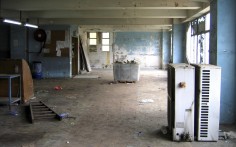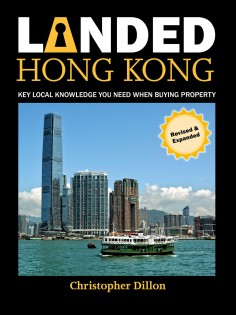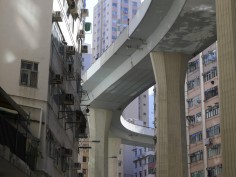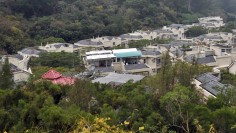
Latest edition of Landed a users' guide to Hong Kong's property market
Landed series continues with a thick Hong Kong edition, now including a long section on pitfalls and possibilities of the New Territories

It's a jungle out there - a concrete one. And if you're to avoid the sundry dangers of purchasing a part of real-estate land and escape the jaws of every lurking, rapacious beast, you'll need a guide.
For crocodiles, piranhas and snakes, read property agents, vendors and developers, each eager to take the biggest possible bite out of your wallet.
But help is at hand from Hong Kong-based Canadian author and entrepreneur Christopher Dillon, whose Landed series of how-to books on negotiating property markets continues to steer buyers through the labyrinth of pitfalls and potholes.
Landed Hong Kong first appeared in 2008; the second edition, published recently, is three times the length. So what's changed, and why a new version when rumours that property prices are heading downwards continue to circulate, meaning potential buyers might be best advised to wait?
"The first Hong Kong book was written before I knew it was going to be a series," says Dillon.
"It was a little like Peter Mayle's A Year in Provence, based primarily on experience. Landed Japan came after that, although by then I hadn't purchased any property there. Result: a change from an anecdote-based to a research-based book. Consequently, it made sense to revisit the Hong Kong volume and bring it up to the standard of subsequent works for anyone interested in learning more."
If there was a glaring omission from the first edition it was probably New Territories-shaped.
The area has a spotlight all its own this time, with a recapping of the story behind Britain's lease and the fog that still engulfs New Territories property law as a result of its indirect rule.
It also has explanations of the Small House Policy and indigenous villagers' rights under the Basic Law; a case study of village-house problems; and treatments of environmental conflicts, roadblocks on private land and vandalism and intimidation.
"The first book didn't have a New Territories section because I had no experience there," admits Dillon. "But it was one of the most interesting parts of the new edition to write, with its fascinating history of how things have come to be.
"You might go to the New Territories at the weekend, you're drinking wine in the sun, you're having a great time, you're looking out over the sea and thinking: 'Wouldn't it be wonderful to buy something here?' But if you're going to buy or build in the New Territories you really need to do your homework and find out what you're letting yourself in for."
Ownership and property rights, as well as risk factors to be considered before buying, are given considerable exposure, with Dillon delving into thorny issues ranging from adverse possession and Hong Kong's "serious air-pollution problem" to defective design and construction, falling objects, noise and soil pollution, landslides, typhoons, property bubbles, "the Chinese government's … increasingly prominent role in Hong Kong's affairs" and more.
Buying off the plan also makes a belated appearance. "If you're looking at the whole market it was an obvious gap," he says.
"It's always been popular among local buyers, who prefer new property. And when things were really buoyant the idea was that you'd buy a place and you wouldn't have to take it on for two or three years, by which point you might have been able to flip it."
Nor does Dillon shirk revelations about his own property successes and misadventures. These include suddenly having to pay an extra HK$260,000 for half of a Wong Chuk Hang factory floor, which he later converted into a video and photography studio, when the price increased because of "a problem"; and the trials faced in his own Pok Fu Lam flat 10 years on from its renovation, including air-conditioning failures, shrinkage of built-in furniture and wooden flooring that warped after flooding.
There was also the threat of a year in prison courtesy of the Buildings Department's haphazard approach to structures it abruptly rules illegal, in this case the balconies in Dillon's building. His balcony was one of 144 in his complex deemed "unauthorised building works". He was obliged to rebuild his eight years after buying the flat.
As for those property prices, 23 years in Hong Kong has taught Dillon not to make snap judgments. "The certainty with which people issue proclamations about property prices is nonsense," he says. "They might fall, they might not. Nobody really knows one way or the other."
Christopher Dillon's Landed series is available at www.landedbook.com


